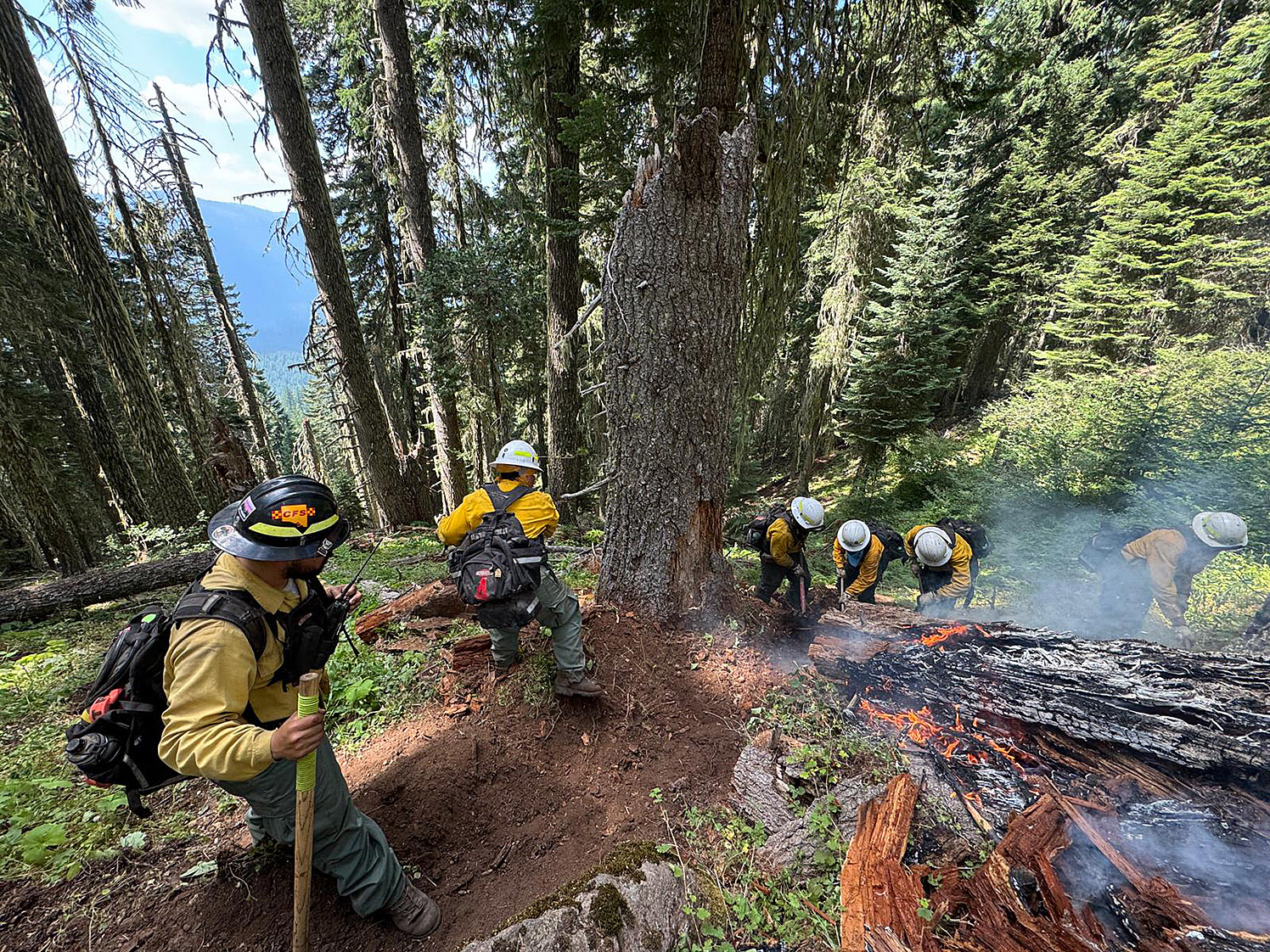Whakatāne firefighter supports US wildfire effort

TACTICAL: Whakatāne firefighter Jamie Rhodes is leading a taskforce in a tactical response to wildfires raging in Oregon. Photos supplied
Brianna Stewart
Whakatāne firefighter Jamie Rhodes has his feet on American soil, battling the blazes raging in the Pacific Northwest.
The Eastern Bay Volunteer Fire Brigade firefighter arrived in Oregon this month to fulfil the role of taskforce leader until early September.
The position sees him on the ground managing a combination of people and equipment in performing tactical missions at a segment of a fire.
He has been dispatched to the Diamond Complex, which is comprised of 29 fires in the Umpqua National Forest caused by lightning and covers almost 4500 hectares. There are more than 700 firefighters working in the area.
As of Wednesday, firefighters had contained 38 per cent of the fire complex as they work on a full-suppression strategy. Government agencies estimated the Diamond Complex fires would be contained completely by mid to late October.

The week Mr Rhodes left New Zealand, there were 137 active wildfires in the Pacific Northwest comprised of Oregon, Washington and Northern Idaho.
Mr Rhodes did not know prior to leaving which state he would be sent to, just that he would go where he was needed most.
He was one of six New Zealand firefighters, and 61 Australians deployed as an Australasian support contingent to the United States.
The New Zealanders have taken on management roles including three as taskforce leaders, and one each as a division supervisor, helicopter manager, and international liaison officer.
Fire and Emergency New Zealand national commander Russell Wood said the United States was experiencing a very difficult fire season, and New Zealand firefighters were happy to answer the call for help.
“Our people will help bolster the management capacity of these United States wildfire services, while also gaining valuable experience, which they will bring back to New Zealand ahead of our own wildfire season this summer.”

Mr Rhodes said there were close to 30,000 firefighters working to control fires in the United States, but they needed more people in overhead positions.
It was a role he was familiar with, having deployed to several overseas fires in recent years in similar positions.
He was motivated to help the American firefighters while they were short.
Mr Rhodes expected to arrive to multiple complex fires in the landscape, which occur when there are several fires in the same area, managed as part of the same group.
Size-wise, the fires are nothing like what we get in New Zealand.
“Our fires can be explosive, but a big fire for us is 2000 hectares, whereas one over there now is over 200,000 hectares.
“When I was in Canada last year, one of the fires I was on was 500,000 hectares.”
Mr Rhodes did not expect to extinguish the fire in the month he was there.
The intention was to give local firefighters a rest and slow some of the fire down if they could.
“A good result for us is everyone coming home safe; that’s the main thing with fire.”
Mr Rhodes said dispatching to support other countries in wildfire season would not be possible without the support of both his workplace and his family.
“Half of us who are going over are volunteers. I work at Fonterra and my shiftmates have covered me so I can take time off to go to the fires.
“We can’t do it without them or our families, who have to carry on for a month without us.”
Whakatāne firefighter Mark Cleghorn is also overseas currently, as a crew leader fighting fires in Peace River Alberta, Canada.
“We’re really lucky here because we’ve got a really experienced crew who have spent a lot of time overseas,” Mr Rhodes said.
Last year, six Whakatāne firefighters went overseas.
“We’re in a good position to fight big fires, but luckily we don’t get too many.”
Part of the reason New Zealanders are so keen to support international crews is because they know the favour would be returned in a heartbeat.
“We know they would be here in an instant to help out. They were all over here for the Christchurch earthquakes, and we work with Australia all the time.”
